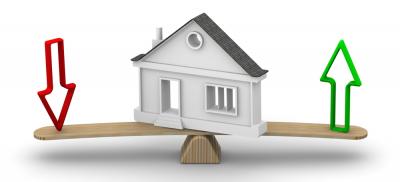If journalists believed everything they received in their inboxes, you’d be forgiven for thinking the private rental sector was a shiny, classless tenure enjoyed by the well-to-do and families as much as by the less well-off singletons.
Build To Rent press releases and marketeers for the high-end developers con-structing flats (sorry - they call them apartments) in high-rise Thameside blocks are particularly keen to change the perception of private renting.
Now of course to some degree they are correct - there ARE more families and more middle-income renting these days, especially if it suits their employment pat-tern or they are between selling and buying. But new figures from the Hamptons let-tings agency, based on its own rental records and recently-released census data, blow the myth that the well off are behind the growth in the private rental sector.
For Hamptons says that the number of households renting privately has grown by 1.12m over the last decade and that the growth in the number of private rented households between 2011 and 2021 was led not by millennial working in the media and enjoying the London life, but by the 10 per cent most deprived areas of Eng-land and Wales.
The agency’s analysis shows that there was an increase of 151,800 privately rented households living in the 10 per cent most deprived areas of England and Wales between 2011 and 2021. That, in turn, means that 23 per cent of house-holds in the poorest 10 per cent of the country rent their home privately, up from 18 per cent a decade ago.
Meanwhile, the 10 per cent most affluent areas of England and Wales saw the pri-vate rented sector add fewer new households than anywhere else in the coun-try. The number of households renting in these areas rose by 80,100, or by just over half the increase seen by the least affluent areas.
Just 13 per cent of households rent their home privately in the 10 per cent most af-fluent areas, up from 10 per cent a decade ago. This marked the smallest increase in the share of households renting a home of any deprivation band.
Overall, around 60 per cent of privately rented homes are found in the 50 per cent least affluent areas. While homeownership rates fell across the country over the last decade, generally they held up more strongly in the most affluent areas.
What is most interesting here, perhaps, is what these figures do NOT show - at least, not directly.
That is, that the private rental sector is increasingly picking up tenants who, until some years ago, would have been in social housing.
And that social housing is now in rapid decline in terms of sector size, and as re-cent tragedies have shown, is a sector also in decline in terms of quality.
Data from the Department of Levelling Up, Housing and Communities (analysed by Shelter, amongst others) shows that social housebuilding in England is at its lowest rate in decades.
And for the past 32 years (yes really - 32 years) there has been an average annual net loss of 24,000 social homes thanks to Right To Buy, shortfalls in local council funding, and other factors.
Now I don’t buy into the popular (and populist) narrative that the private rental sec-tor is a second-rate sector. So many landlords work so hard, for decreasing returns, to ensure they put a home over people’s heads.
However, it’s clearly wrong that the private rental sector should be used by politi-cians, by accident or design, to prop up their own policy shortfalls in building up and maintaining a viable social housing sector. With more people denied social housing and then being pushed into private rentals, the issues of overcrowding and property conditions on the private side inevitably get worse.
Which makes it all the more ironic that the politicians of all parties who, so fre-quently and in such an attention-seeking way, hammer the private rental sector are often the same politicians who appear to say so little - indeed, nothing - about the shortage of social housing they have presided over for decades.
It’s time to use figures like those from Hamptons not to batter landlords, nor even developers - it’s time to use those against the politicians who have let our country’s housing priorities slide for decade after decade.








/ParliamentView-400x310.jpg)




.png)


.png)



Join the conversation
Jump to latest comment and add your reply
Absolutely excellent article, thank you.
Please login to comment